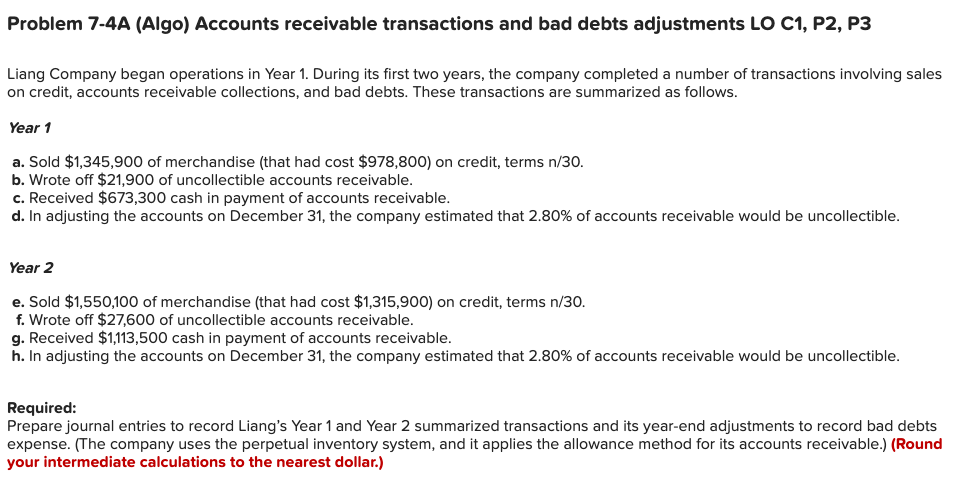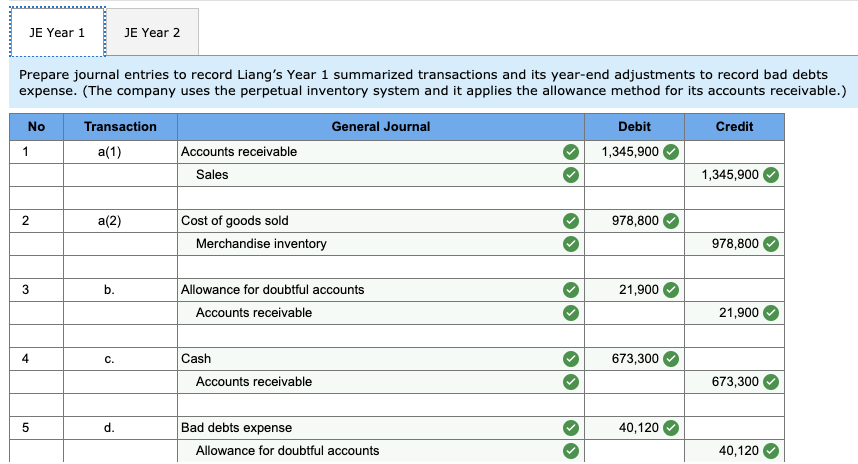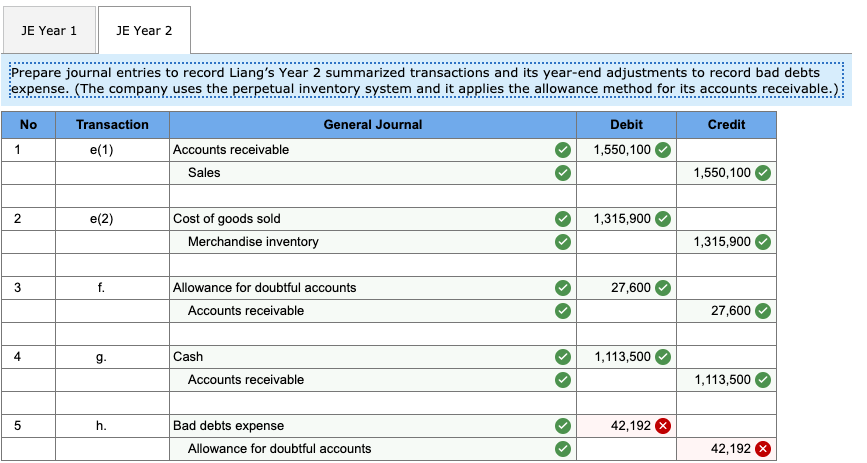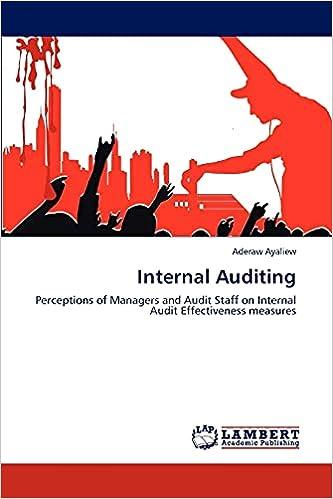Answered step by step
Verified Expert Solution
Question
1 Approved Answer
Im not sure what im doing wrong here; i did 1,345,900 - 21,900 - 673,300 + 1,550,100 - 27,600 - 1,113,500 = 1,059,700*0.028 = 29,671.6



Im not sure what im doing wrong here; i did 1,345,900 - 21,900 - 673,300 + 1,550,100 - 27,600 - 1,113,500 = 1,059,700*0.028 = 29,671.6 + 40,120 - 27,600 = 42,191.6
But its wrong, i even tried to do 29,671.6 + 27,600 - 40,120 but that was wrong too
Problem 7-4A (Algo) Accounts receivable transactions and bad debts adjustments LO C1, P2, P3 Liang Company began operations in Year 1. During its first two years, the company completed a number of transactions involving sales on credit, accounts receivable collections, and bad debts. These transactions are summarized as follows. Year 1 a. Sold $1,345,900 of merchandise (that had cost $978,800) on credit, terms n/30. b. Wrote off $21,900 of uncollectible accounts receivable. c. Received $673,300 cash in payment of accounts receivable. d. In adjusting the accounts on December 31, the company estimated that 2.80% of accounts receivable would be uncollectible. Year 2 e. Sold $1,550,100 of merchandise (that had cost $1,315,900) on credit, terms n/30. f. Wrote off $27,600 of uncollectible accounts receivable. g. Received $1,113,500 cash in payment of accounts receivable. h. In adjusting the accounts on December 31, the company estimated that 2.80% of accounts receivable would be uncollectible. Required: Prepare journal entries to record Liang's Year 1 and Year 2 summarized transactions and its year-end adjustments to record bad debts expense. (The company uses the perpetual inventory system, and it applies the allowance method for its accounts receivable.) (Round your intermediate calculations to the nearest dollar.) JE Year 1 JE Year 2 Prepare journal entries to record Liang's Year 1 summarized transactions and its year-end adjustments to record bad debts expense. (The company uses the perpetual inventory system and it applies the allowance method for its accounts receivable.) No General Journal Credit Transaction a(1) Debit 1,345,900 1 Accounts receivable Sales 1,345,900 2 2 a(2) 978,800 Cost of goods sold Merchandise inventory 978,800 3 b. 21,900 Allowance for doubtful accounts Accounts receivable 21,900 4 c. 673,300 Cash Accounts receivable 673,300 5 d. 40,120 Bad debts expense Allowance for doubtful accounts 40,120 JE Year 1 JE Year 2 Prepare journal entries to record Liang's Year 2 summarized transactions and its year-end adjustments to record bad debts expense. (The company uses the perpetual inventory system and it applies the allowance method for its accounts receivable.). No General Journal Credit Transaction e(1) Debit 1,550,100 1 Accounts receivable Sales 1,550,100 2 e(2) 1,315,900 Cost of goods sold Merchandise inventory 1,315,900 3 f. 27,600 Allowance for doubtful accounts Accounts receivable 27,600 4 g. 1,113,500 Cash Accounts receivable 1,113,500 5 h. 42,192 X Bad debts expense Allowance for doubtful accounts 42,192Step by Step Solution
There are 3 Steps involved in it
Step: 1

Get Instant Access to Expert-Tailored Solutions
See step-by-step solutions with expert insights and AI powered tools for academic success
Step: 2

Step: 3

Ace Your Homework with AI
Get the answers you need in no time with our AI-driven, step-by-step assistance
Get Started


